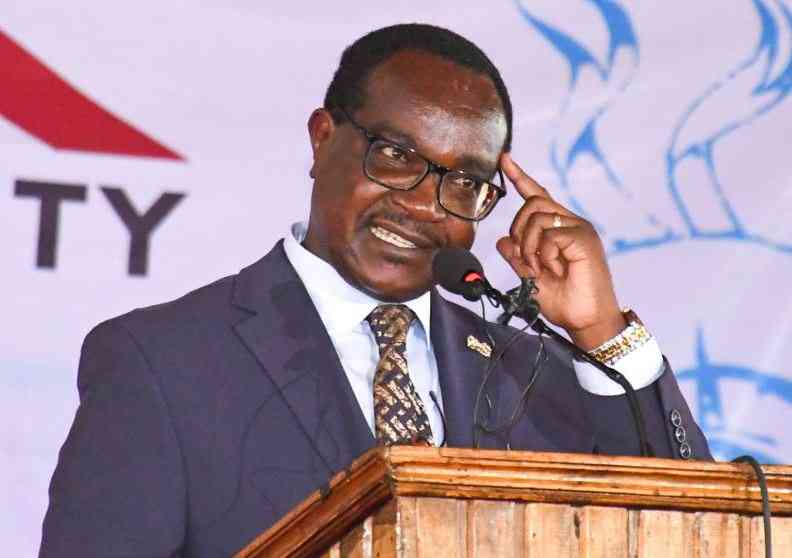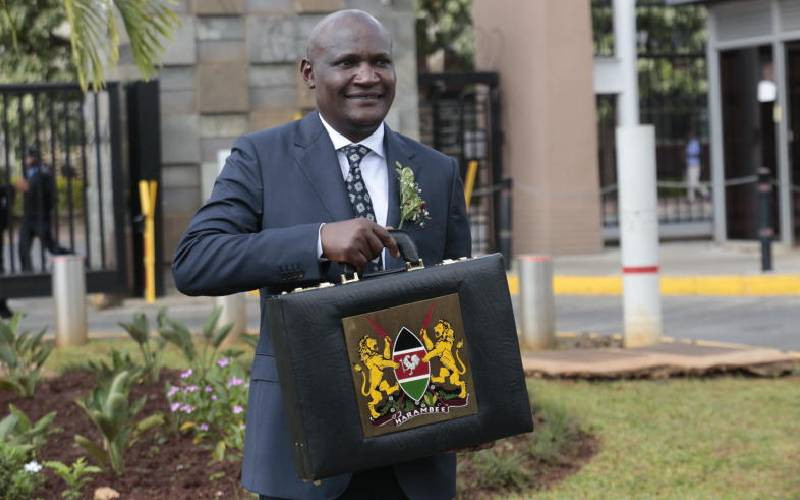Inside secondary schools shake-up in preparation for CBC transition
Education
By
Lewis Nyaundi
| May 19, 2025

Secondary schools are now headed for a major shake-up as the pioneer class of Competency Based Curriculum (CBC) joins senior secondary school.
The transition is expected to overhaul school funding, disrupt staffing patterns, and introduce entirely new subjects and structures — marking a seismic shift from the decades-old 8-4-4 system.
Among the sweeping reforms is a proposed differentiated funding model, where government capitation will vary based on subject clusters and students’ needs — similar to the current university funding system.
Technical and science pathways will attract more state funding due to higher delivery costs.
READ MORE
From Sh4.24 tr to Sh4.29 tr: Mbadi moving numbers raise eyebrows
Epra boss picked for global energy body's post
Alarm as Kilifi-based Tanzanian gas firm fails key KEBS safety standard
State seeks private investment to improve water access
Kenyan engineers to get jobs abroad after board signed Washington Accord
China builds giant radio telescope to meet needs of scientific observation
Oil firms put on the spot over high LPG cost despite tax exemptions
Debt hole set to deepen, civil servants to lose perks in new plan
Binance, Crypto Chamber back Kenya bill, urge balanced tax policy
The changes come at a time of declining student numbers in secondary schools, with institutions set to host just three classes instead of four.
This dip — from the phasing out of Form One under 8-4-4 — is expected to slash school revenue and force institutions to rethink their operating models.
In an unprecedented move, some boarding schools may introduce “day wings” — a hybrid model aimed at making elite institutions more accessible and easing financial pressure on parents.
At the same time, mass teacher transfers are being planned to redistribute staff and align with CBC subject requirements — a proposal that is causing concern in teacher unions.
For the first time since 1986, schools will be running dual curricula — the outgoing 8-4-4 and incoming CBC — and hosting two separate cohorts in a single calendar year.
In the changes, a plan is in the pipeline to overhaul funding of students in secondary schools as the government proposes a model that mirrors university funding.
Similar to universities, senior secondary schools — covering Grades 10 to 12 under the CBC — will receive differentiated funding.
The Standard has established that plans are at an advanced stage to finalise the new financing model for senior schools that will be adopted in phases with the first beneficiaries being the Grade 10 learners who will join senior school in January.
The move seeks to address long standing challenges in resource allocation, staffing, and access.
The phased implementation of the new funding formula will be based on students’ level of need, course requirements, or subjects.
This is a shift from the current blanket capitation approach.
Under the current system the government provides a flat-rate capitation of Sh22,244 per student.
The proposal by the Ministry of Education is set to take effect in January, when secondary schools admit the first cohort of Competency-Based Curriculum (CBC) learners.
Under the proposal the government plans to allocate more money to students pursuing technical and science-related courses to help schools meet the higher costs of delivering these subjects.
Courses requiring expensive infrastructure—such as engineering, technology, and technical subjects—will receive more support.
The document explains that the subjects are costlier due to the need for laboratories, machines, and special tools.
“The government is considering a tiered capitation structure for technical and STEM subjects to offset higher costs. The government is developing a Senior School Funding Model for Grade 10 to rationalize funding per student based on pathway requirements,” the document reads.
This comes at a time the schools are navigating a challenging decline in revenue after a significant drop in school population and revenue as only three classes are left in secondary schools. Under the 8-4-4, secondary schools had four classes.
However, with the phasing out of Form One in January 2025, Kenyan secondary schools will only have three classes: Form Two, Form Three, and Form Four.
With the exit of this year’s KCSE class, next year, the schools will only have two classes of the 8-4-4 learners and the pioneer class of the Senior Secondary School.
This means schools will no longer receive funding allocated for Form One students under the Free Day Secondary Education programme.
This exposes the institutions to possible financial troubles due to lower student numbers and the absence of additional government grants to cushion the impact.
In a move aimed at easing congestion and promoting affordability, the Ministry is also considering the introduction of “day wings” in boarding schools.
Also in the pipeline is a shake-up that could see mass transfer of teachers across the country.
The Teachers Service Commission (TSC) is expected to redistribute staff to reduce shortages in certain regions and align competencies with CBC needs.
However, teacher unions have expressed unease, citing disruptions to family life and school stability.
“Transfers should be negotiated and considerate of personal circumstances,” said a KNUT official, warning of potential industrial unrest if the plan is mishandled.
A document by the Ministry of Education proposes redistribution of teachers to address imbalance.
The plan proposes redistributing teachers based on the subjects and pathways schools will offer.
According to the report, schools are grappling with severe shortages in science, mathematics, technical and vocational education subjects.
“Stakeholders expressed concerns on shortage of teachers across various learning areas. They particularly highlighted specialized learning areas such as Music in Creative Arts, Special Needs Education (SNE), and pre-technical studies,” the report reads.
If implemented, the move could spark fresh controversy as the Teachers Service Commission moves to implement the recommendation mirroring the 2018, wave of protests after implementing a delocalisation policy that transferred teachers away from their home counties.
The change will also see the introduction of day wing in existing boarding schools.
According to the Ministry of Education recommendation, a number of current boarding schools will be opened for day scholars in cases where there are no day schools.
In the proposal, the government wants the institutions to be referred to as hybrid schools.
Secondary schools will also introduce new subjects and learning areas that currently are not accommodated under the 8-4-4.
Under the CBC, the students will now have the chance to major in sports as a subject.
This is a move from the previous arrangement where sports was only considered a co-curricular activity that had little to no contribution to a learner’s academic success.
Also introduced as a mainstream subject is the Community Service Learning which will be a compulsory subject alongside Mathematics, English, Kiswahili or Kenya Sign Language and Physical Education.

